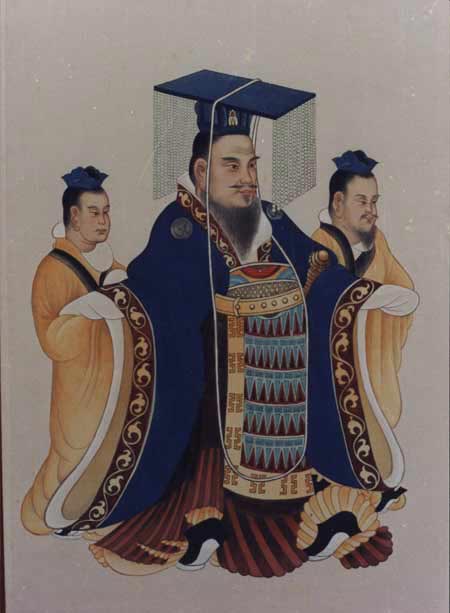 The emperor Wu of Han (156 BC- 87 BC) seventh emperor coming from the Han Dynasty, whose personal name was Liu Che, ruled China from 141 BC to 87 BC. He became famous for his accomplishments that gained China new and vast territories. Under his reign, he organized a powerful and highly centralized state. Chinese history regarded him as the greatest Han emperor, and one of the greatest ever in the history of China. His exploits and very effective governance earned ancient China as being one of the most powerful nations in the world.
The emperor Wu of Han (156 BC- 87 BC) seventh emperor coming from the Han Dynasty, whose personal name was Liu Che, ruled China from 141 BC to 87 BC. He became famous for his accomplishments that gained China new and vast territories. Under his reign, he organized a powerful and highly centralized state. Chinese history regarded him as the greatest Han emperor, and one of the greatest ever in the history of China. His exploits and very effective governance earned ancient China as being one of the most powerful nations in the world.
As an energetic military campaigner, Liu Che embarked China into its greatest expansion ever, with the empire’s western borders creeping all the way through what we know today as modern Kyrgyzstan. He also annexed Northern Korea on the other side and the north of Vietnam to the south. He stood his ground hard and stopped the nomadic Xiongnu from its raiding campaigns of Northern China. He also had sent an envoy to forge alliances with the Yuezhi (modern day Uzbekistan). This paved the way for more expansion missions towards Central Asia. Even though historical records made no claim that he followed Buddhism during his time, the incorporation of new territories suggests that he was presented with Buddhist statues coming from Central Asia.
Emperor Wu was the tenth son of the Emperor Jing. He was chosen to rule over China at the age of seven. He was presented the throne at sixteen years old. Back in his time, Emperor Wu was considered an extraordinary ruler because of his great talents strengthened and held together by his bold visions. He had a keen sense for military strategy, as well as tactical as he was known to be a fighting monarch. All these accounted his title “Wu,” which means “Martial.”
The age of Emperor Wu was highly considered as the golden and most prosperous periods in China’s ancient history. Just right after his succession to the throne, he masterminded a stable political arena combined with a very favorable national economy that paved the way clear for important achievements in the nation’s economy, politics, foreign affairs, and other state affairs. And just like other great leaders in history who had successfully quelled local troubles back home so they can finally turn their attention towards conquering their neighbors, Liu did just the same; set up his nation first with effective policies to withstand domestic conflicts and pressures and then go about with expansive conquests.
This innovative monarch took some political measures effectively. He had efficiently selected his government officials, using their talents so that they were able to function properly in their assigned posts. He also had the ingenious idea of creating measures that would further centralized authority and prevented other smaller kingdoms from challenging him openly.
Emperor Wu had also take time to adopt and conceptualize various economic reform policies. He changed and improved China’s currency system. He then proceeded at monopolizing large-scale industries, like manufacturing, the selling of salt and of iron. All these important measures further strengthened the grip of the central government.
Emperor Wu also had the privilege to drive away the Huns, those “half-human and half-horse” devils that sprang out from the ground literarily, as the ancient citizens used to say. Backed with a strong economy that naturally spawned an effective military machine, he had successfully safeguarded his northern territory.
Although Liu Che was known all throughout his whole life as a warlike emperor, he had successfully managed to accomplish feats and great achievements for the greater good of society. He died on the throne at the age of 70, capping his 54-year rule.